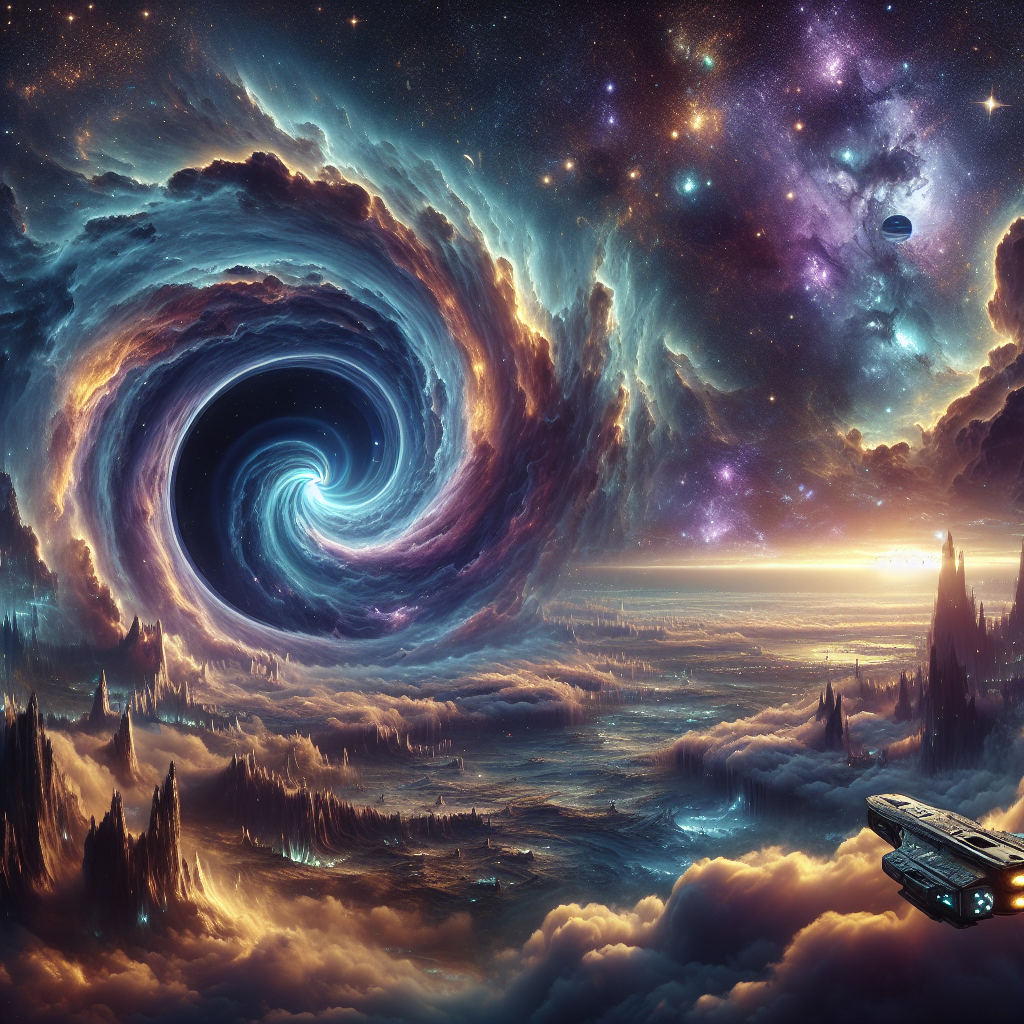Introduction to Wormholes
Wormholes have long been a staple of science fiction, presenting a tantalizing vision of instant travel across vast distances or even time. But beyond the realm of sci-fi, the question remains: Could Wormholes Actually Exist? This concept challenges our understanding of physics and the universe, making it a fascinating subject for both theoretical physicists and curious minds alike.
Theoretical Foundations of Wormholes
The idea of wormholes first emerged from Einstein’s theory of general relativity. The equations of this theory, under specific conditions, suggest that wormholes, or ‘Einstein-Rosen bridges,’ could theoretically exist as tunnels connecting different points in spacetime. However, the existence of naturally occurring wormholes is still a subject of speculation among scientists.
One significant issue is stability. Theoretical models propose that wormholes would require ‘exotic matter’ with negative energy density to remain open. This type of matter has not yet been discovered, and without it, wormholes might instantly collapse upon formation.
Recent Research and Developments
Recent advancements in theoretical physics have kept the discussion about wormholes alive. Scientists like Kip Thorne have explored the possibility of traversable wormholes in the context of quantum mechanics and string theory. These studies suggest that while highly speculative, certain conditions could potentially allow for stable, traversable wormholes that could be used for rapid space travel.
Practical Challenges and Misconceptions
Despite the exciting theoretical progress, the practical creation or discovery of wormholes faces monumental challenges. The energy required to open and stabilize a wormhole is beyond our current technological capabilities. Additionally, there is a common misconception that wormholes would allow for time travel. While intriguing, this adds another layer of complexity and paradoxes, further complicating their scientific feasibility.
Implications for Science and Philosophy
The ongoing discussions about wormholes are not just about the potential for new technology but also touch on deeper philosophical and ethical questions. If Could Wormholes Actually Exist, they could redefine concepts of distance, connectivity, and the very nature of reality.
Moreover, the pursuit of understanding wormholes stimulates advancements in other areas of physics and encourages a broader public interest in space and science.
Conclusion
While wormholes continue to be a fascinating topic at the intersection of science fiction and theoretical physics, substantial evidence and practical applications remain in the realm of speculation. However, the pursuit of such profound questions about our universe is itself a testament to human curiosity and ingenuity.
As we continue to explore the cosmos, the mysteries of wormholes remind us that the universe may hold possibilities beyond our current understanding.


